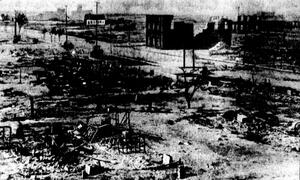author
5,424 Results
author
article
Go Outside, Meet Your Students
“All these kids … you must be brave,” said the man in hiking gear. After a sunny but cold day on the beach punctuated by a trudge through sandpaper wind, I was plodding downhill with the stragglers from my hiking group. The more energetic among them galloped to the end, past the curious hiker.
professional development
Strategies for Reducing Racial and Ethnic Prejudice: Essential Principles
These design principles developed by the CODA panel are meant to provide guidelines for action to those selecting or developing strategies to improve intergroup relations.
May 10, 2011
article
Remember the Tulsa Race Massacre

May 31 marks the anniversary of the 1921 Tulsa Race Massacre. Here's why this history must be told.
article
‘Princess Boys’ and Preempting Stereotypes
As part of our bedtime routine, I was excited to share a new book with my 4-year-old daughter. My Princess Boy by Cheryl Kilodavis would be our story for the evening. We began, as always, by reading the title and looking at the illustrations.
professional development
Reflection Activity: Identity
Individual reflection activity exploring identity.
May 5, 2011
professional development
Cross-Racial Understanding and Reduction of Racial Prejudice
Willis Hawley's review of research on the effects of racial and ethnic diversity in schools on racial understanding and student achievement.
May 5, 2011
article
A Student's View on the Silence Over Bullying
Growing up, no one told me that people shouldn’t be gay. My parents didn’t tell me I shouldn’t talk to kids whose parents were lesbian. My neighbors didn’t rant against the horrors of gay rights. Instead, all the people in my life encouraged me to live openly, to take people’s personalities and see the beauty in them, to smile at the adorable young couple clutching each other’s hands, no matter their gender. Love was love. I lived in a world blissfully ignorant about the cruelties of the “real world.”
author